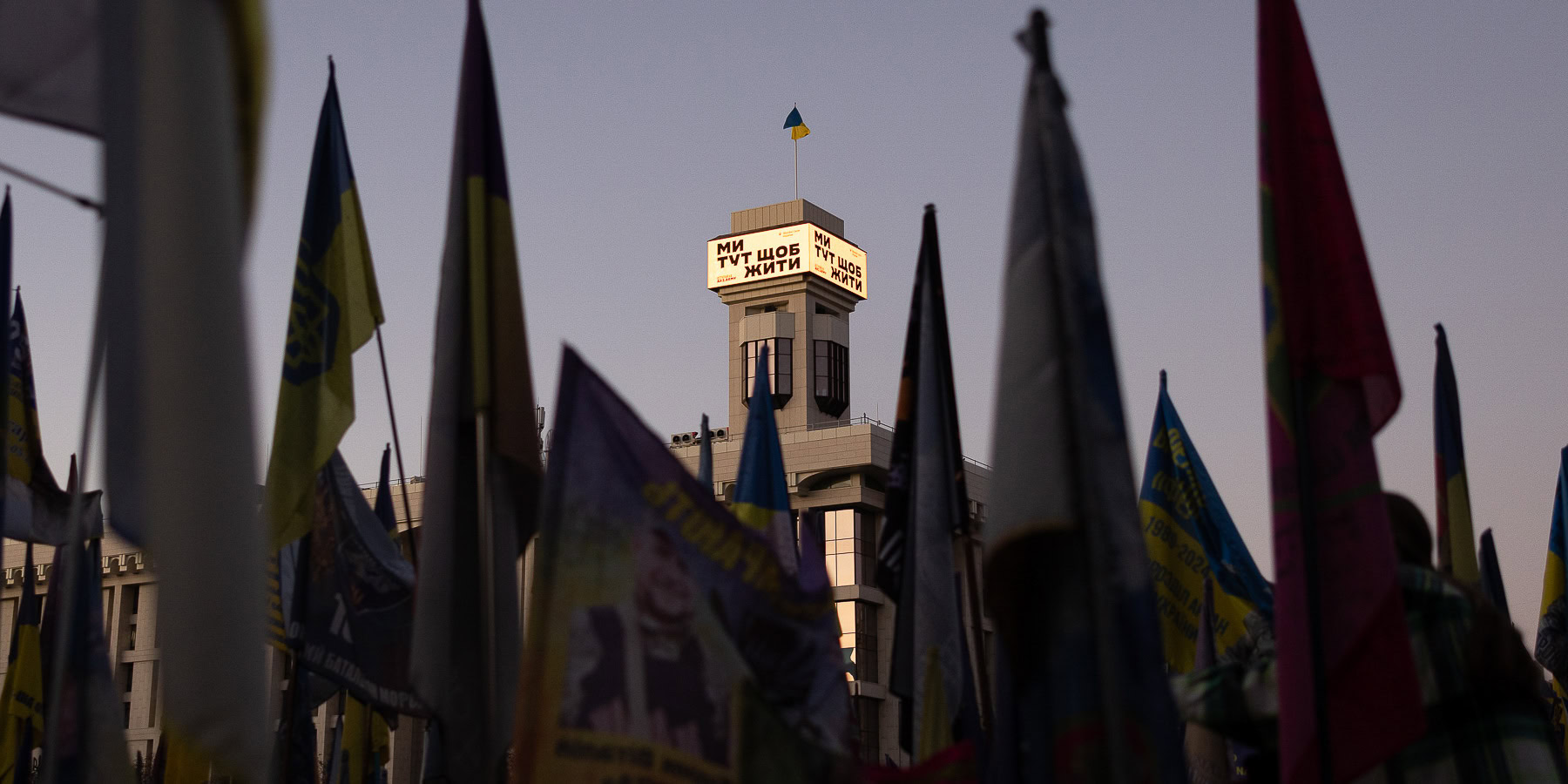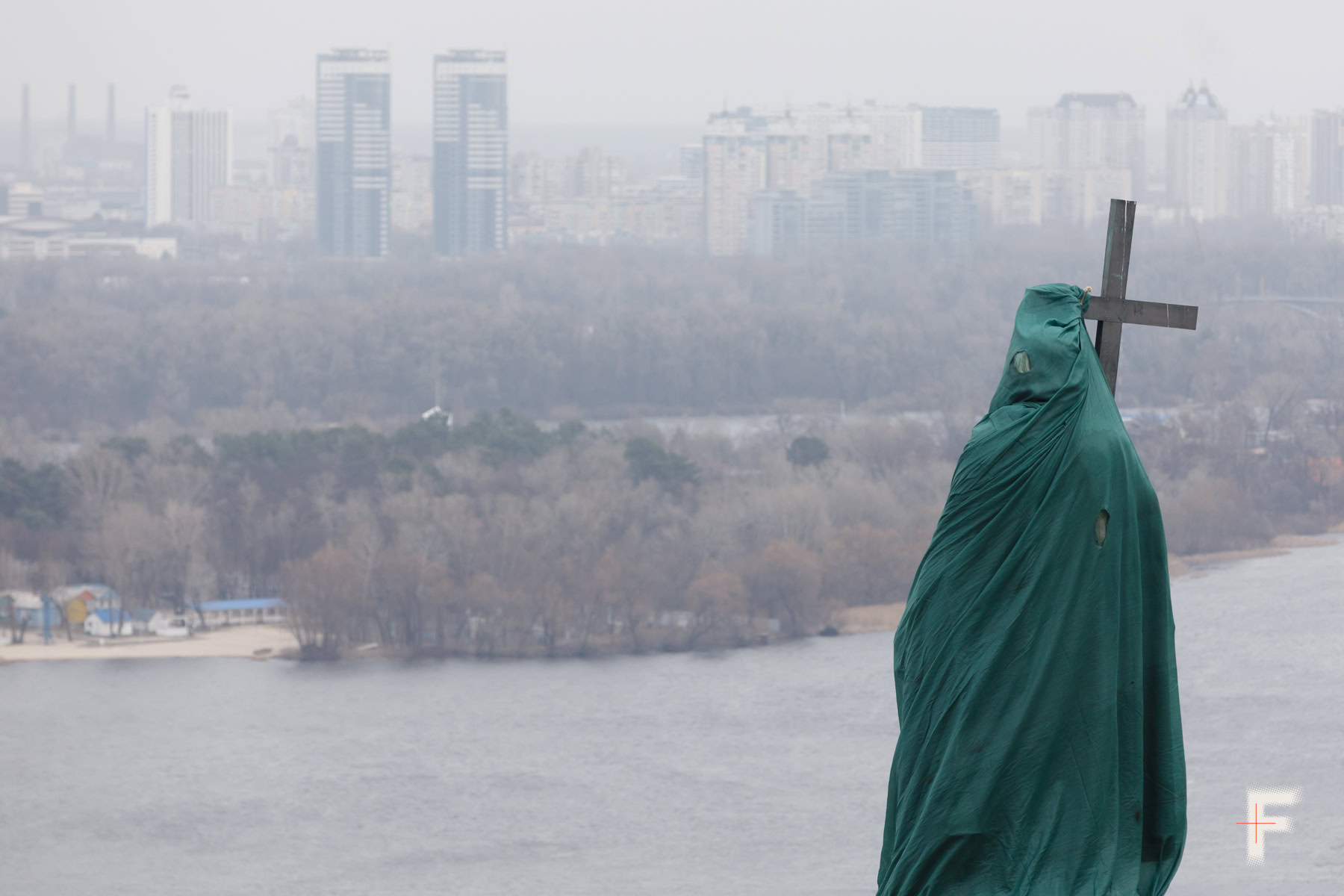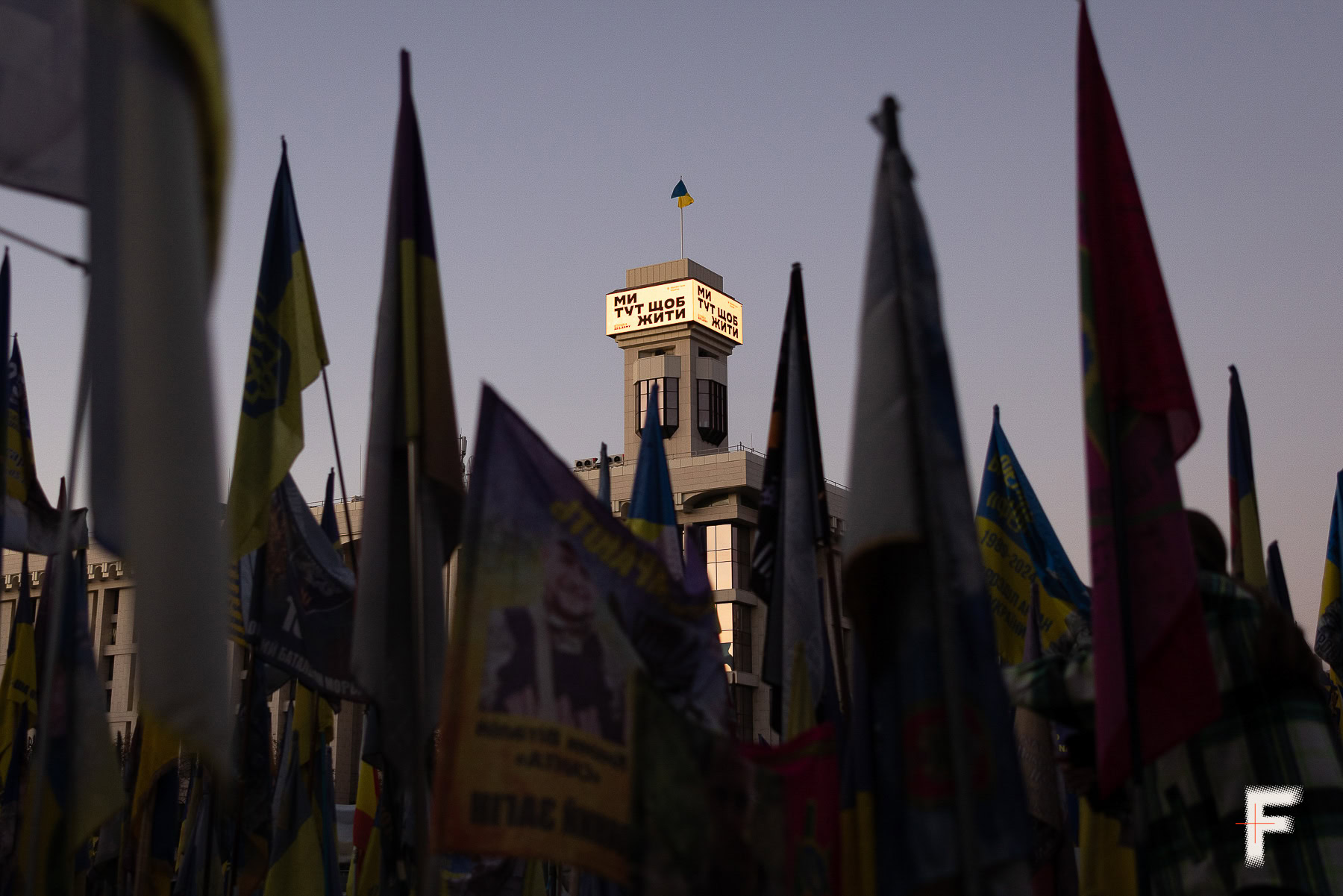

Kyiv and a winter that never seems to end
Kyiv remains in a state of internal stillness, even as life gradually returns to the streets. The city coexists with the war: landscapes, habits, and rhythms are changing, and if you listen closely to the silence you can sense the tension in its streets. Even a brief visit from other cities brings back the feeling of the war’s presence in every detail. Frontliner reporter Yuliia Huz shares her perspective on how war has become the backdrop of everyday life in Kyiv.
My youth is terrifying: it forces me to live and die too quickly. My youth knocks confidence out from under my feet, painting everything gray. The more I know, the wider the horizon becomes, and the clearer it becomes: I know nothing.
When I was little, I would sometimes imagine having to choose just one thing from everything I owned – the one thing that would stay with me forever. What would I choose?
April 13, 2022, was the happiest day of my life — the day I returned home from evacuation. In the first months after Russia’s full-scale invasion of Ukraine, everything that had once felt like the foundation of my teenage life fell apart. Yet home remained: its image was an anchor, and the hope of returning gave life meaning. In my mind, I kept revisiting familiar walls and details. I pictured where everything was placed, played the guitar in my imagination. It made no practical sense, but my home became my hope – something deeply personal, something no one could take from me, no matter what was happening around me.
Those six weeks of evacuation in Khmelnytskyi felt endless — first two days passed, then a week, then three. It was a limbo between worlds, uncertain whether to move forward or simply wait to return. Planning shrank to minutes, then expanded to hours, and by March, stretched to a single day. You wake in the morning but cannot imagine the next.
Returning to Kyiv: a city frozen in war


After returning from evacuation, Kyiv was empty. It was cold, and due to late frosts, the trees had yet to bloom. That’s how I remember April in Kyiv 2022: frozen – waiting for news, listening for explosions that at first became less frequent and then almost faded away. As warmth arrived, the trees blossomed and the streets gradually became busier, yet the sense of stillness remained. I still notice it: anti-tank hedgehogs on the streets, monuments wrapped for protection, windows of strategically important buildings sandbagged. Not everyone returned. The trees do not bloom as they once did. Kyiv has changed forever: it has become part of the war and now moves in synchrony with it.
Kyiv before and after the invasion: the rhythm that disappeared
It wasn’t always this way – there used to be no place for silence in Kyiv. The city was in constant motion, always pulling you somewhere. Each time I returned to Kyiv, I was taken by its rhythm: so full of life, filled with the sound of car horns, crowds at metro stations, the glow of streetlights, and movement that never seemed to cease. And yet, within that same city, there was tenderness – the greenery of trees, almost rural neighborhoods, and narrow, hidden streets.
Perhaps the stillness began even before the full-scale invasion. Back in October, the thought of war seemed unreal. There were more immediate, everyday concerns, thus more important: the lack of bike lanes, not enough parking spaces. But as the cold arrived in November, an unease began to spread through the city, and after New Year’s, Kyiv’s usual rhythm faded.
Anticipation turned into stillness, as if the city were conserving its strength. When the first explosions came, that energy surged outward into defense. And when the enemy army retreated from the city, it froze, and has remained that way ever since.


Seasons without purpose: how the war changed the sense of time
The spring of that year was slow to arrive. The weather mirrored the moment, stretching the days and holding the city still. When warmth finally came, it became clear that it no longer brought comfort, nor brought life: the trees began to bloom, yet the streets remained empty; step by step, summer approached, but in truth, the seasons no longer mattered.
Many of the people who found themselves in Kyiv due to the war felt out of place. They were easy to spot, lost, like children. As they moved through the streets, they didn’t really have a destination. Those who had returned home tried to pretend that everything was as it had been before. They acted as if they were living in a time of peace, but it didn’t feel very convincing.
Summer arrived. Yet it felt as if winter still lingered, and the warmth was only a temporary illusion – pleasant, but deceptive. That year, I don’t remember seeing girls on the streets in high heels and dresses – instead, people dressed for comfort, ready to run at a moment’s notice.
Kyiv now: a city living in the shadow of war
Summer ended, and my student life in Lviv began. It was a different kind of leaving home – this time, with the promise of return. I realized that in another city, one could not only be without plans or stability, but also discover oneself and seize new opportunities. In another city, one could love, grow, and begin to see a future.


Since that September, I have seen Kyiv only for brief moments. Each time I visit, it feels different. Yet the city’s inner stillness, its frozen quality, remains. The longer the war continues, the harder it is to be struck by it. All the more, it begins to feel natural, and so it’s easier not to notice. The war has become part of the city’s everyday life, leaving and continuing to leave its imprint in both major changes and the smallest details.
Kyiv is a home you can carry in your heart and return to when challenges become too much to face. Here, you can hide from your “adult” life, from the illusion of independence. Kyiv is the return from a comparatively “peaceful” Lviv to war and its attributes. The city of childhood has transformed into an image of reality. A reality of the real me, of a present war, and of solid ground beneath my feet. This holds even when everything changes so quickly that it’s hard to hold on to anything. Even when everything freezes.
Text: Yuliia Huz
Adapted: Irena Zaburanna
Read more — Mykolaiv. One cannot forget how the August sun sets over the Southern Bug.
